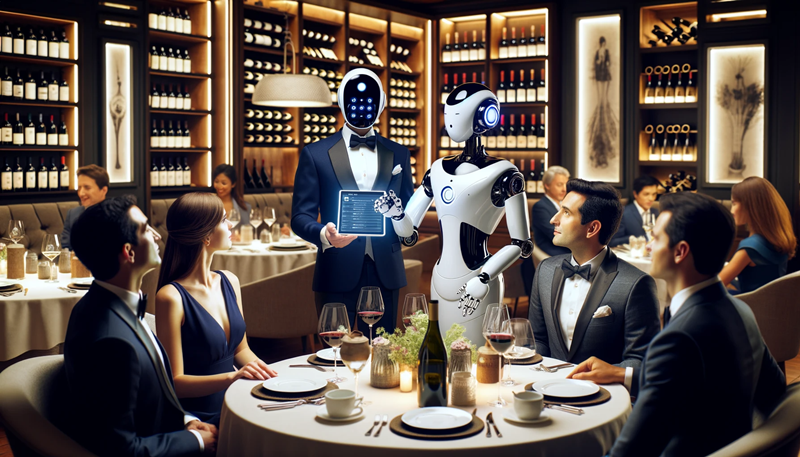Can AI replace sommeliers and wine experts?
A future of collaboration or replacement?
2024-01-10

In recent years, the integration of Artificial Intelligence (AI) into various industries has sparked a debate about its impact on traditional professions and its potential to replace human expertise. One such field, unexpectedly affected, is that of sommeliers and wine tasters. The burning question is whether AI could replace these wine experts, or if there exists a path of collaboration and coexistence between technology and human knowledge in this age-old art.
To better understand this phenomenon, it's crucial to explore how AI is being incorporated into the world of wine. Technological advancements have enabled the development of algorithms capable of analyzing vast amounts of data related to consumer preferences, wine characteristics, and grape cultivation conditions. This analytical capacity of AI translates into personalized recommendations for consumers, predictions about harvests, and advice in the wine-making process.
Towards the end of last year, we were astounded to learn that an AI tested over 80 wines and correctly identified their wineries with 100% accuracy, solely based on the wine itself. This week, another AI, developed by the University of Copenhagen, left us speechless by being able to analyze wines and find the ideal consumer based on personal tastes. These are just a few examples, and there will be many more, as AI has the potential to learn at an exponential rate.
In this context, the main concern for wine professionals is to what extent AI might replicate and surpass the skills of a sommelier. The role of these experts is not only about having in-depth knowledge about wines but also involves a refined sensory capacity to discern flavors, aromas, and textures, as well as an ability to understand and connect with each customer's preferences and needs. These inherently human qualities present a significant challenge for replication by AI.
However, some argue that AI could surpass certain human limitations. For instance, its ability to process vast amounts of information and data could enable it to identify patterns and correlations that no human could detect. Additionally, AI is not subject to the sensory variations and fatigue that can affect human judgment.
Despite these advantages, the human interaction and personalized experience offered by a sommelier seem irreplaceable. Sommeliership is not just science, but also art, where intuition, empathy, and personal interaction play a fundamental role. In this regard, AI could function more as a complementary tool than a substitute, or at least that's what we'd like to believe. For example, it could be used to improve inventory management, provide initial recommendations to customers, or analyze consumption trends that help sommeliers refine their proposals.
On the other hand, the incorporation of AI into the wine world also opens new opportunities for sommeliers. Technology can be an ally in education and continuous training, allowing these professionals to access up-to-date and detailed information about the latest trends, studies, and advancements in oenology. Additionally, it can facilitate experimentation and the discovery of new wines and wineries, expanding the range of possibilities a sommelier can offer to their clients.
Although AI is significantly transforming the wine sector, it seems unlikely that it will completely replace the figure of the sommelier. Instead, what is emerging is a symbiotic relationship, where AI acts as a tool that enhances and complements human knowledge and skills. The key will be how wine professionals adapt and leverage these new technologies to enrich their work and offer even more sophisticated and personalized experiences to wine lovers.
Founded in 2007, Vinetur® is a registered trademark of VGSC S.L. with a long history in the wine industry.
VGSC, S.L. with VAT number B70255591 is a spanish company legally registered in the Commercial Register of the city of Santiago de Compostela, with registration number: Bulletin 181, Reference 356049 in Volume 13, Page 107, Section 6, Sheet 45028, Entry 2.
Email: [email protected]
Headquarters and offices located in Vilagarcia de Arousa, Spain.